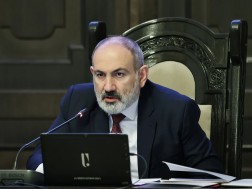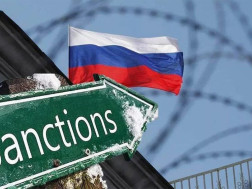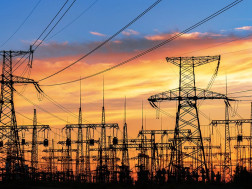Iran has responded with anger and disappointment to the new US secretary of state saying American sanctions against Tehran will not be lifted until it comes back into verifiable “full compliance” with its commitments under the 2015 nuclear deal.
Antony Blinken said Iranian compliance would take some time, indicating there is unlikely to be any major movement in negotiations until after the Iranian presidential elections in June.
Blinken made his remarks at a press briefing, prompting some Iranians to claim the Biden administration was using the same failed bargaining tactics as Donald Trump.
Hesameddin Ashena, adviser to the Iranian president, Hassan Rouhani, told Blinken on Twitter if this kind of approach had been effective, then “Donald Trump would not have left the White House waiting for a phone call from Iran”.
The Iranian foreign minister, Mohammad Javad Zarif, has in a series of interviews and articles over the past fortnight set out a plan whereby Iran would come back into compliance with the deal as soon as the US lifted its panoply of sanctions. He also insisted Iran was not willing to renegotiate the existing deal, or to discuss its missile programme.
Rouhani has highlighted the pain continued US sanctions has caused his country and himself personally. He said: “I testify to God that in these three years, there has not been a night that I can go to bed with peace of mind. During these three years, I felt responsible for the period of the imposed war and I felt that we were in the imposed war. People persevered, endured and suffered a lot.”
Iran has moved away from the nuclear deal commitments, including by breaching agreed uranium enrichment limits and threatening from February to minimise the access UN inspectors have to its nuclear sites.
The Iranian parliament speaker, Mohammad Baqer Qalibaf, went to the Fordow nuclear site near Qom on Thursday to be briefed on uranium enrichment stockpiles and preparations for changes to the nuclear inspection regime. On the sidelines of the visit, Iranian officials said they intended to install more IR2m gas centrifuges in the next three months. They said Iran had 17kg of stockpiles of 20% enriched uranium, well above the limits set out in the agreement.
Blinken has assembled a team with experience of negotiating with Iran, and it may be he is setting out a maximalist bargaining position before the start of any talks. He also has to ensure he takes a sceptical Congress with him.
He said: “President Biden has been very clear in saying that if Iran comes back into full compliance with its obligations under the JCPOA [Joint Comprehensive Plan of Action], the United States would do the same thing and then we would use that as a platform to build, with our allies and partners, what we called a longer and stronger agreement and to deal with a number of other issues that are deeply problematic in the relationship with Iran.
“But we are a long ways from that point. Iran is out of compliance on a number of fronts. And it would take some time, should it make the decision to do so, for it to come back into compliance in time for us then to assess whether it was meeting its obligations. So we’re not – we’re not there yet, to say the least.”
Blinken made the comments on the same day as speaking with his foreign minister counterparts in Germany, France and the UK to gauge their thinking. EU diplomats have also just returned from a visit to the Gulf states to discuss how to handle Iran.
Blinken also said the US was suspending arms sales deals to Saudi Arabia and the United Arab Emirates.
The US stance had been prefigured in briefings by French officials earlier in the week, prompting Zarif to tweet on Tuesday: “Why on earth should Iran – a country that stood firm & defeated 4 years of a brutal US economic terrorism imposed in violation of JCPOA & UNSC Resolution – show goodwill gesture first? It was the US that broke the deal – for no reason. It must remedy its wrong; then Iran will respond.”
Iran’s ambassador to the UN, Majid Takht-Ravanchi, writing in the New York Times, said: “Iran, for its part, has declared on numerous occasions that it is ready to return to the obligations initially agreed under the nuclear deal and expeditiously reverse the measures we have taken since, if all of the sanctions are withdrawn that were imposed and reimposed by the Trump administration after its illegal withdrawal from the accord.”
Israeli military officials have broken protocol before Israel’s elections to warn against a US return to the nuclear deal.
One issue for any negotiations is the precise US sanctions that Iran wants lifted, since some predate the signing of the nuclear deal in 2015.
Source: The Guardian
















